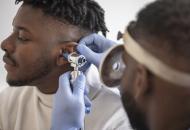Let’s get this out of the way up front: If colorectal cancer is diagnosed in its early stage, it’s highly survivable. In fact, according to the American Cancer Society, there are more than 1.5 million colorectal cancer survivors in the United States today.
(Note: The term “colorectal cancer” refers to both colon cancer and rectal cancer, with colon cancer being the more widespread of the 2; for that reason, we’ll be focusing on it below.)
Why do so many people survive colon cancer? There’s been a push to get more people screened for it, medical technology is better than ever, and there are more treatment options available as well.
In fact, the number of deaths caused by colon cancer has been dropping for several decades.
That said, colon cancer isn’t something to be taken lightly.
It’s still one of the leading causes of cancer deaths in the United States, and more people under the age of 50 are being diagnosed with colon cancer than ever before.
Because of this, the American Cancer Society lowered the recommended age from 50 to 45 for people to begin getting colon cancer screenings in 2018.
So what does this mean for you?
If you take the proper steps, a colon cancer diagnosis is treatable, according to Nissrin M. Ezmerli, M.D. She’s a gastroenterologist with Capital Digestive Care, a private practice group in Silver Spring, Maryland.
“Colon cancer is what we call a preventable cancer,” she says.
That’s because doctors can find polyps — or small clumps of cells that form on the lining of the colon, some of which can lead to cancer — and remove them early, before they become a problem.
According to Dr. Ezmerli, there are 3 ways you can keep your risk of colon cancer low.
Ask yourself: If you got sick and had to miss work, would you have enough to cover your bills? That’s where critical illness insurance can help. Explore it today.
1. Stay on top of your colon cancer screenings
The most effective way to prevent colon cancer is to get screened for it regularly. You have a few options if you have an average risk of colon cancer. These include:
- At-home tests, such as Cologuard, that along with traces of blood, can detect other potential markers that can be linked to cancer (recommended every three years)
- A colonoscopy, a procedure in which your doctor puts a thin tube into your body to check for polyps, which are often removed during the procedure (recommended every 10 years)
- At-home tests, such as the fecal immunochemical test (FIT), that check for blood in your stool (recommended once a year)
All these screenings can detect signs of colon cancer, but colonoscopies are considered the most effective.
Why do people avoid colonoscopies? Preparing for one can be uncomfortable, because your colon must be completely empty for your doctor to be able to see what is or isn’t there. Nevertheless, it remains the best screening option.
Dr. Ezmerli notes that if you have a family history of colon cancer, you’ll want to get a colonoscopy 10 years earlier than the age when that family member was diagnosed. She adds that though they’re the best option for colon cancer screenings, any of the recommended screening methods will work.
“I would prefer people do something rather than nothing,” she says. “It’s the only way to know what’s going on.”
2. Aim for a high-fiber, low-fat diet
Another good way to minimize the risk of colon cancer is to eat foods that are low in fat and high in fiber.
Dr. Ezmerli explains that a high-fat diet is not good for your body overall, but it’s particularly harmful to your colon. That’s because high-fat foods are harder for your large intestine to digest, which could potentially trigger the growth of polyps that could lead to cancer.
A recent review found evidence that a low risk of colon cancer was connected to a diet high in fiber, calcium, and yogurt and one that includes less alcohol and red meat.
Although more research is needed to understand this diet’s connection to colon cancer prevention, it’s a positive step.
Ready to explore insurance plans where you live?
3. Make exercise a priority
You know breaking a sweat is great for your body overall, but here’s how it helps you fight colon cancer: Exercise helps your body digest food faster so that the parts of your body involved in digestion — which include your colon — are less likely to be exposed to cancer-causing substances.
Exercise literally gets you moving inside and out. (And one last note from Dr. Ezmerli: If you smoke, try to quit. Colon cancer is just one of many illnesses associated with cigarettes.)
Reducing your risk with easy steps like modifying your diet and exercise routines are a great place to start. Getting a traditional health insurance that covers colon cancer screenings is one great option — as is supplementing that coverage with help if you have an unexpected diagnosis. Explore supplemental critical illness insurance today. Learn more online, or call a licensed insurance agent at 1-844-211-7730.
This article contains information that is not compiled by UnitedHealthcare or any of its subsidiaries. UnitedHealthcare does not represent all the information provided are statements of fact. Please consult directly with your primary care physician if you need medical advice.
UHOCOLONCA1
SOURCE LIST
American Cancer Society. "Key Statistics for Colorectal Cancer." January 12, 2021. Retrieved from https://www.cancer.org/cancer/colon-rectal-cancer/about/key-statistics.html.
American Cancer Society. "Survival Rates for Colorectal Cancer." January 29, 2021. Retrieved from https://www.cancer.org/cancer/colon-rectal-cancer/detection-diagnosis-staging/survival-rates.html.
American Cancer Society. "When Should You Start Getting Screened for Colorectal Cancer?" February 4, 2021. Retrieved from https://www.cancer.org/latest-news/american-cancer-society-updates-colorectal-cancer-screening-guideline.html.
Centers for Disease Control and Prevention. "Colorectal Cancer Screening Tests." February 8, 2021. Retrieved from https://www.cdc.gov/cancer/colorectal/basic_info/screening/tests.htm.
JAMA Network. "Role of Diet in Colorectal Cancer Incidence: Umbrella Review of Meta-analyses of Prospective Observational Studies." February 16, 2021. Retrieved from https://jamanetwork.com/journals/jamanetworkopen/fullarticle/2776517.
Mayo Clinic. "Colon polyps." Retrieved from https://www.mayoclinic.org/diseases-conditions/colon-polyps/symptoms-causes/syc-20352875. Accessed December 22, 2021.
National Cancer Institute. "Physical Activity and Cancer." February 10, 2020. https://www.cancer.gov/about-cancer/causes-prevention/risk/obesity/physical-activity-fact-sheet#how-might-physical-activity-be-linked-to-reduced-risks-of-cancer.









